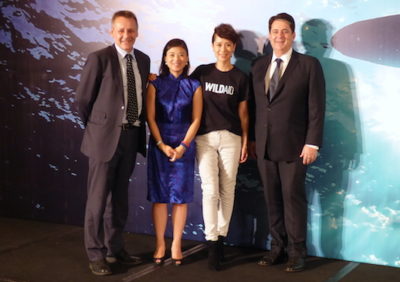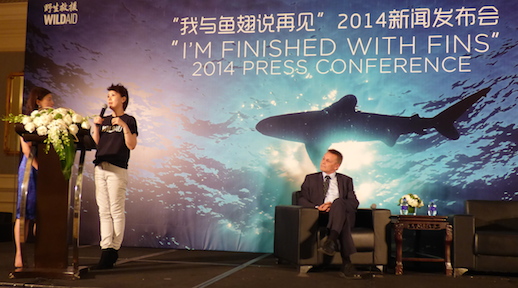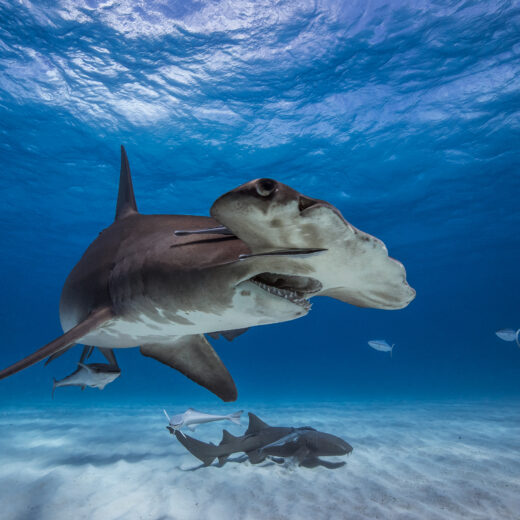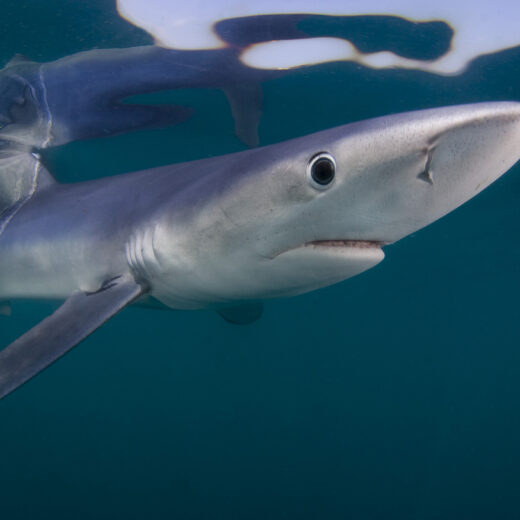
Prices of shark fin are falling in China by 50%-70% and sales have decreased by 82% according to a new report released last week by WildAid. “Evidence of Declines in Shark Fin Demand, China” compiles public opinion surveys, surveys of shark find vendors and traders in the markets of Guangzhou, China (the current center of China’s shark fin trade) and surveys of shark fin price data from Indonesian shark fishermen, as well trade statistics and media reports.
The report also found rising public awareness with 85% of Chinese consumers surveyed online saying that they had given up shark fin soup within the last three years. Two-thirds of these respondents cited awareness campaigns as a reason for ending their shark fin consumption, while the second and third most popular reason given were that they “want to protect sharks” and that it is “cruel the way they kill sharks” — key messages of WildAid’s ongoing public awareness campaign.
The findings of the report were presented at the Ritz-Carlton, Beijing. The luxury hotel and its parent company, Marriott International, took the opportunity to celebrate the success of WildAid’s “I’m FINished with Fins” campaign, and to proudly tout their policy of not serving shark fin soup at their hotels throughout China.


While addressing the crowd, Hai Quing admitted, “I’ve eaten shark fin soup. It’s a little embarrassing now, but I didn’t know back then. Once I learned about the cruelty behind it, about it’s lack of nutrition, about the impact on oceans, I stopped eating it.”


A chef from The Ritz-Carlton presented an ethical shark fin soup alternative. This young couple tried the soup and talked to event attendees about why they won’t be serving shark fin soup at their upcoming wedding.
“I’m FINished with Fins” is part of WildAid’s broader effort to reduce demand for shark fin soup that has included television public awareness messages featuring high-profile celebrities such as Yao Ming, Jackie Chan and actress Maggie Q. In 2013, WildAid’s shark fin awareness messages aired 3,250 times across 19 TV channels in China amounting to $11.6 million in pro bono media placement. In addition, WildAid launched a social media pledge campaign in partnership with Sina Weibo (China’s equivalent to Twitter), reaching 200 million subscribers. Of those, 50 million posts were read, and 340,000 users uploaded photos or signed the pledge in the first two weeks.
Stay in touch and get the latest WildAid updates.
SIGN UPAbout WildAid
WildAid is a non-profit organization with a mission to protect wildlife from illegal trade and other imminent threats. While most wildlife conservation groups focus on protecting animals from poaching, WildAid primarily works to reduce global consumption of wildlife products such as elephant ivory, rhino horn and shark fin soup. With an unrivaled portfolio of celebrity ambassadors and a global network of media partners, WildAid leverages more than $308 million in annual pro-bono media support with a simple message: When the Buying Stops, the Killing Can Too.
Journalists on deadline may email communications@wildaid.org


